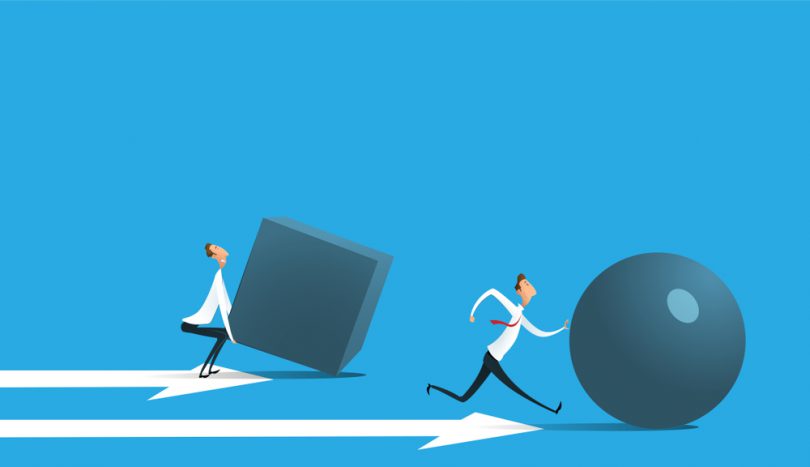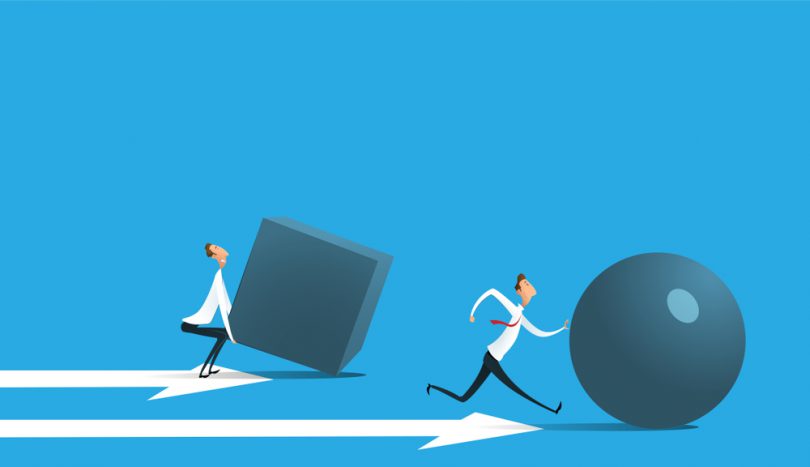
Work Smarter, Not Harder: Technology Solutions to Adopt
In your quest to work, you dramatically transformed your daily lives and work culture.
In a world where software solutions are readily available in the palm of our hand, everyone, whether it’s an organization or an individual, now has access to tools that can simplify and streamline the underground damage prevention requirements of a job.
For example, ensuring the safety of workers is critical in any industry, so maintaining that workers have easy access to the information they need to work safely is paramount. With a collated single job pack accessible via a tablet on site, contractors have the information they need to work safer and smarter in their hands. It is available 24 x 7.
Increasing your productivity and performance at the workplace while increasing your overall job satisfaction can be achieved by working smarter, not harder. Furthermore, this increases your job security by making you a valuable resource to the organization where you work. Working smarter rather than harder requires some practice and development.
But not all digital solutions are as accessible and easy to use as others. So, what technology will actually help you work smarter, not harder?
Collaboration Tools
How many times have you been in a long meeting that seemed pointless? It’s happened to all of us at some point. Fortunately, many of those unnecessary meetings could be replaced with real-time collaboration.
There are numerous solutions available nowadays that allow you to collaborate with your colleagues or clients from any location. You can, for example, use video-conferencing systems like Zoom to share your screen. You may also collaborate on files and documents in real time, making changes that will be displayed on a single version, so there’s no doubt about which version you’re looking at. Furthermore, you can find all of the materials you require on cloud-based storage such as Dropbox.
Additionally, you can easily communicate quickly and efficiently thanks to tools like Slack and Teams, which allow you to check in without writing out long emails or holding lengthy Zoom meetings.
Distraction Blockers
Innovation in technology is both a blessing and a curse. On the one hand, it opens up doors to possibilities that we could never have imagined. We can ask Alexa to look up information for us, watch movies and TV episodes on our laptops without leaving the house, and divide the bill with our pals without having to use multiple credit cards.
Unfortunately, all of this exciting technology comes with its own set of distractions. When we’re continually checking Instagram or reading our latest texts, it’s impossible to finish our task. What’s more, guess what? Technology has the potential to solve the very problem it produces.
Tools like AppBlock and Freedom, among many other options, allow you to block apps and websites you designate for a given period of time, preventing you from checking them for that duration, thereby enabling you to avoid these distractions.
Project Management Software
Whether you have a dedicated project manager or not, project management software is more than a “nice to have” solution; it may often be the difference between projects failing and succeeding.
Individuals and corporations alike use tools like Trello, Wrike, Monday, and others to keep track of their projects and make sure they’re on track with their goals. They allow you to stay on top of your to-do list without having to check in with coworkers or send emails that may go unanswered for hours or days at a time.
Editing Tools
Whether we’re professional writers or not, writing is a component of many of our daily activities. However, we aren’t all born editors. You don’t have to waste any more time wondering if you used the correct verb in that sentence or double-checking the spelling of that specific proper noun.
Grammarly, for example, takes care of copy editing — and extensive editing, if you pay for the commercial version — for you, saving you time and energy spent poring over your text.
Time management tools
Are you feeling a little disorganised? Many of us struggle with organization, and if it’s not one of your strengths, you could be holding yourself back.

Clean up the mess with the help of resources that can help you manage your hectic work schedule and life. Take notes and preserve them all in one place with Evernote, for example. And use Google Calendar to keep track of all your appointments and time-sensitive chores; – it’s free to use and comes with reminders. Additional platforms, both paid and free, are available to help you keep track of everything on your plate.
Artificial Intelligence
You’re surely well aware of AI’s numerous capabilities for making our work lives less stressful. It allows you to save time and focus your efforts on operations that require human talent rather than those that are tiresome, time-consuming, and, in the end, a waste of skills.
Consider chatbots. These solutions are being used by businesses to facilitate interactions between customers and businesses, allowing customer support employees to focus on more difficult issues.
Take into account applicant tracking software (ATS) as well. Instead of leaving this duty to automation tools, which can highlight potentially suitable individuals, these systems allow human resources specialists and recruiters to forgo the time-consuming process of looking through resumes to discover the appropriate fit.
Digital Transformation
This is a company-wide endeavour, not an individual investment. Many businesses are implementing digital transformation initiatives today to ensure that their systems and processes are as efficient as possible.
This is likely the most effective way to “work smarter, not harder.” Too many firms use outmoded technology, which causes issues for employees and the company as a whole, prohibiting individuals from performing their duties successfully and efficiently. You may improve the speed and efficiency of your business by reworking your software and replacing it with newer, superior models.
It’s an understatement to say that there isn’t enough time in the day. And if you’re always tired after a long day at work, you might not be getting the most out of it.
That’s why it’s time for you to take a hard look at how you can make your processes more efficient. There are many technological solutions that will allow you to improve your workflow, whether at an individual or company level. And they will allow you to work more intelligently, with greater focus.
Here are some ways on How to work smarter, not harder
Create a work plan for the week
The first step to working smarter instead of harder is the first step to working smarter. Typically, employees do know what they have to accomplish in the entire week. So, make a plan for it and write it down in your notebook or digitally in your notes. Once you know what you need to accomplish, you can divide it into practical deadlines.
Prioritise your most important tasks
after creating a weekly work plan for yourself. The first thing that you should do is identify the top tasks for a given day. When you know all that you need to accomplish, prioritize the tasks. This will help you get done first and avoid missing deadlines.
Prioritizing is nice in theory, but difficult in practice. Here are the steps you should follow to prioritize your work effectively:
- Determine which tasks are high-impact work.
- Segregate the tasks into categories like important and urgent, important but not urgent, or neither important nor urgent, and plan your day accordingly.
- Ask your manager what they need from you first.
- Estimate how long each task will take you to complete.
- Put the high-impact tasks that are important to your manager and the fastest to complete at the top of your list.
Focus on one task at a time
There are employees worldwide who believe in multi-tasking, which could be an effective method in some fields. However, if you are working in the corporate sector or the development sector, it is best to focus on one task at a time. Put all your efforts, experience, and energy into one task, and once it is accomplished, you can then move on to the next one. Multi-tasking can end up being a cause of stress, and you certainly don’t want to be stressed.
Make sure that you have the appropriate tools and documents
To get started with the task, make sure that you have all the appropriate tools that may be needed to achieve the objectives. You may need certain documents from other team members, so make sure that you get them. This way, you will not have to start from scratch. You are all set to get started on accomplishing the tasks by now.
Be crisp and precise in your communication
Some people add unnecessary graphs, figures, or information to their documents or reports to make them better. They are not actually making the reports better by adding unnecessary things; they are just increasing their workload. Be crisp, clear, and precise with your reports or tasks. Your client or management doesn’t want an explanation of unnecessary things. They just want the goal to be achieved. If your assignment or task is short but covers everything required, then it is good to go. Never look at the word limit if you are writing a report, the number of graphs during evaluation, or the length of a document.
The briefer the document is, the better it is. Extra information will not do any good to the actual task; it will just be something that will be cut out later.
Conclusion
Work smarter, not harder. Many of us aspire to this seeming utopia where machines do the most painfully boring parts of our job, while we do only what brings the most glory, accolades, and excitement. Working smart is the lifeblood of Legal Operations. For all the metrics, meetings, and measurement, legal operations professionals just want to ensure the value of resources allocated to a task is equal to the value of the task at hand. They drive us toward this smarter way of working with changes in people, process, and technology.
It is very important to understand that smart work doesn’t mean finding shortcuts, adopting ineffective approaches, or slacking when working. Working smarter means that you achieve the desired goals or desired outcomes in a streamlined yet productive way.
Tags :
Recent Post



Category list
- Business (9)
- Cloud (4)
- Devops (5)
- Dotnet (5)
- IT Consultants (1)
- Mobile (2)
- Time Mangement (1)
- Uncategorized (3)
Quick Contact
